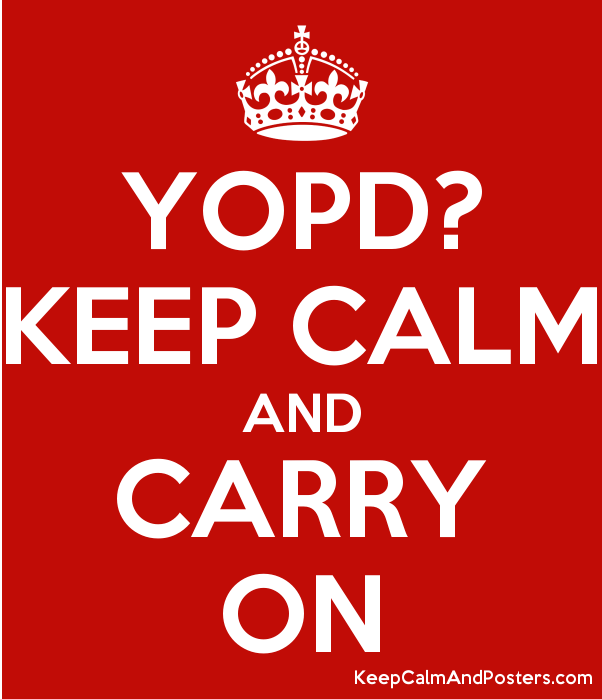In July this year i was invited to attend the 5th World Parkinsons Congress(WPC) to speak about Young Onset Parkinsons Disease (YOPD). Held in Kyoto Japan the WPC is one of the biggest medical conferences in the world and is spread over 4 days over with speakers and workshops showcasing the latest research and scientific developments covering all things Parkinsons. The WPC is unusual, for a clinical congress, in that over 1,000 (of the 2,777 attendees from 60 countries) were people with Parkinsons (PwP) and their care partners or family.
The scientific parts of WPC 2019 are way above my pay grade. I don’t profess to understand the first thing about neuropharmacology, biomarkers, or the how’s and why’s of mis-folded alpha synuclein proteins. Nor can I elaborate on the analysis of datasets for stage 3 drug trials. I was intending to attend a whole raft of care focussed workshops covering autonomic disfunction, incontinence, depression, pain, cognitive decline and dementia but I had a few responsibilities. - namely speaking, running a workshop, chairing a roundtable - which when combined with my duties as a WPC Ambassador robbed me of the opportunity to see all I planned.
So I have little to report back to you from a scientific perspective except to observe that that there are many clever people (yes even a Nobel Laureate) working on a myriad of angles to understand the complex beast we know as Parkinsons. Despite the fact that hope abounds for a cure the reality is that there is no big breakthrough. Nothwithstanding that over the next few years there is a logjam of clinical reporting due on some significant trials.
On the care front here are two bite-sized takeaways.
Build community
As you will no doubt be aware one of the major non-motor symptoms of Parkinsons is depression. Whether caused by a lack of dopamine or serotonin imbalance or compounded by other symptoms (such as anxiety, shame*, speech difficulties and being less able to think/talk) all leads to a sense of getting smaller, slower and becoming isolated - which in turn can cycle into depression .
* Shame is an underrecognized symptom, rarely explored in clinical practice and in PD research.
‘Shame in Parkinsons lurks when hand tremor occurs in public, or causes spilling food or drink all over oneself or somebody else, earning appraisals by others that one is gross, ill mannered, deviant or worse. Shame also emerges when gait is unsteady or impaired ; when the way to speak is soft and slurred with a recurrent assumption or mislabeling by non-medical people as drunkard. Shame can erupt from akinesia, at the checkout counter of a grocery store for example, when PwP struggle pulling out money/cards from her/his wallet, and feeling that customers in line showing signs of impatience, or when micrographia turns ones hand writing into chicken scratch that no one can read, or when turning takes ages because of the 10 steps needed to perform a turn. The facial mask induced by PD is also a sensitive topic for PwP. Facial expression is essential for communication and facial masking can be misinterpreted as unfriendliness or simply odd. Shame can also arise from PD-induced dysarthria and hypophonia when PwP have to constantly repeat everything that they say.’
Dr Laurie Mischley has been running a study on people with Parkinsons and she posit’s
"If nutrients impact on the progression of PD then, going beyond exercise and nutrition, one could easily consider social interaction and connection as actually a nutrient of ones (mental) health”. Her study of over 2,000 PwP found that the TWO biggest predictors of PD progression is
-
the sense of support (active friends) one has AND
-
whether one feels lonely or not.
So it may not be rocket science but If you know of or care for a person with a neurological disorder keep supporting them to connect (hobbies, support or exercise groups) and more importantly work with them on building their team/crew/buddies or ‘wolfpack’.
Exercise is medicine
The other message (if you haven’t yet got the memo) it is that exercise is supposed to be neurologically protective and may even be neurologically regenerative. The thing about having a degenerative neurological condition is that it keeps getting worse so anything which slow down progression affects quality of life positively. Keeping oneself as fit and active, within the boundaries that relate to ones age and stage, have a myriad of benefits. Exercise is difficult for the able-bodied, 'dopamine wealthy' so it isn’t an easy pill to swallow - but it's free and the only side effects are fatigue and stiffness - and they come with PD most days of the week - even when you’re inactive.
"What is the best kind of exercise for PwP?”
“The one you'll do”
Dr Sarah King
It is recognised that regular high intensity workouts supplemented with resistance training (boxing, cycling, PD specific programmes etc) can result in improved balance, fewer falls, increased stamina, better sleep and, as with all self care, a general sense of purpose, confidence and nuturing of mental resilience. Literature also supports a return of arm swinging, more fluid walking and less frequent episodes of freezing. Adding in a balance component (tai chi, yoga or pilates) can maximise flexibility and restore balance.
In summary building community plus keeping PWP moving, in whatever manner, every day is critical to maintaining quality of life.


